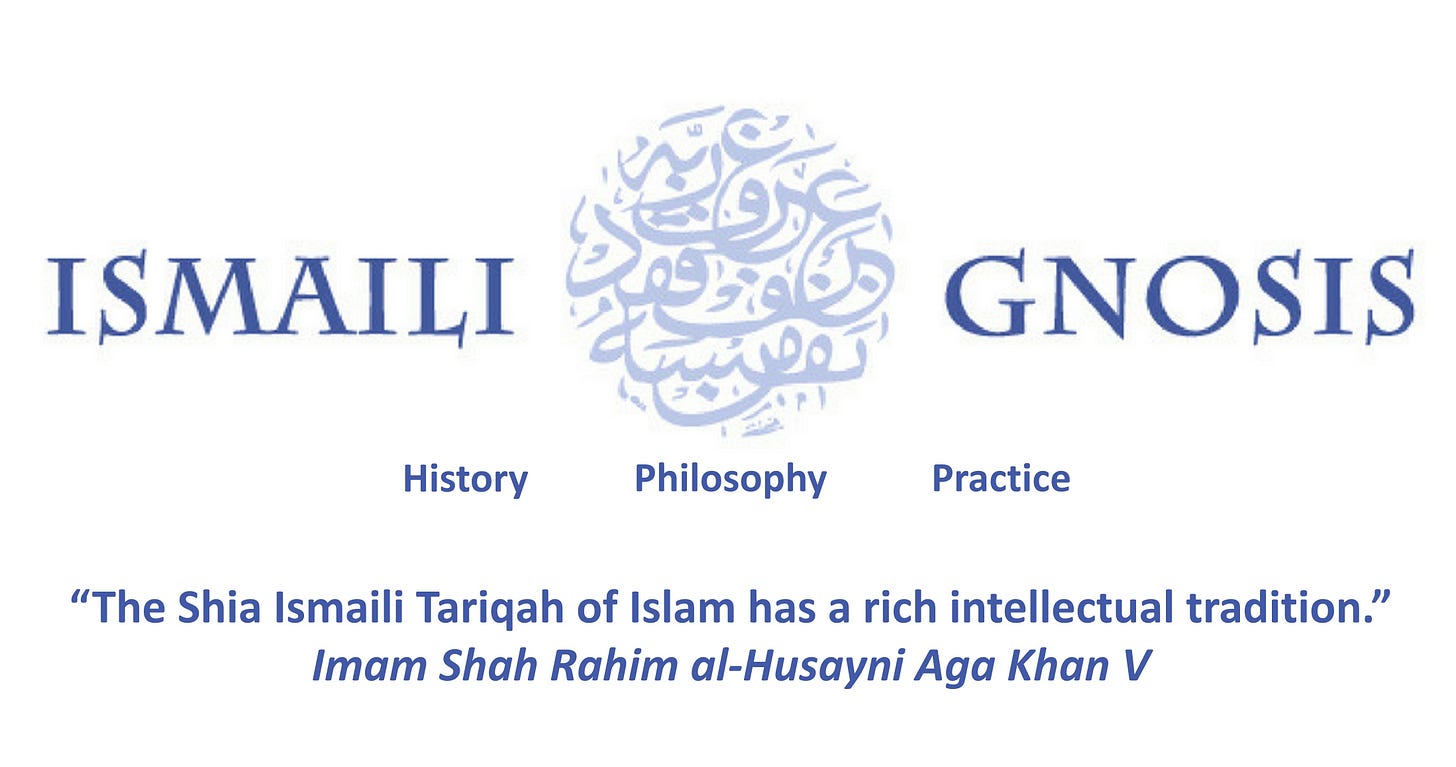Hidden Shirk: Rejecting the Help of Prophets and Imams Is Ego Worship (12 Min. Read)
Exploring how rejecting the help and prayers of Prophets and Imams reflects ego-worship and a misunderstanding of true Tawhid.
This article examines the subtle form of spiritual idolatry known as hidden shirk, in which believers arrogantly reject the help and intercession of the Prophet Muḥammad (ﷺ) and the Imāms, claiming a direct, unmediated relationship with God. Drawing on Qurʾānic verses (4:64, 9:103, 63:5) and the insights of Ṣūfī authorities such as Ibn al-ʿArabī and Jalāl al-Dīn Rūmī, it shows that prayer and intercession are not about persuading God — whose giving is constant — but about preparing the soul to receive His mercy.
Rejecting the authority, prayers, and blessings of the Prophet and the Imām — denying their divinely appointed spiritual rank and role — is a subtle form of ego-worship, akin to the sin of Iblīs, and reflects a defective understanding of tawḥīd (God’s oneness). The article further argues that the Prophets, Imāms, and awliyāʾ are themselves maẓāhir — transparent mirrors of the Divine — through whom God’s mercy, blessings, and intercession reach believers. Seeking their help, therefore, is not shirk (associating partners with God) but the highest expression of monotheism, affirming both God’s transcendence and immanence.
Note: It is recommended to read this article alongside our previous post, “Why Do Ismailis Call on the Imams for Help in Prayers?”, either beforehand or immediately afterward.
“And when it is said to them,
‘Come, the Messenger of God
will pray for your forgiveness,’
they turn their heads aside,
and you see them evading
while they are arrogant.”
— Qurʾān 63:5
“And if, when they wronged their souls,
they had come to you [O Muḥammad],
and asked forgiveness of God,
and the Messenger had asked
forgiveness for them,
they would have found
God Forgiving and Merciful.”
— Qurʾān 4:64
“[O Muḥammad]
Take offerings from their wealth,
by which you cleanse them
and purify them,
and pray over them.
Verily, your prayer
is a source of peace for them.
And God is the Hearing, the Knowing.”
— Qurʾān 9:103
Hidden Shirk: Mistaking Pride for Pure Monotheism
If one responds to the verses cited above by saying, “I do not need an intermediary between myself and God” or “since God is all-powerful, it is better to ask Him directly,” the point is missed entirely. This view mistakes the issue. Those who call seeking the help of the Prophets and Imāms shirk (associating partners with God) have misunderstood the matter. Prayer is not about persuading God, whose giving is constant, but about preparing the soul to receive what He always bestows. This is why Ibn al-ʿArabī — one of the greatest authorities of Sunnī Sufism, celebrated as al-Shaykh al-Akbar (the Greatest Shaykh) — emphasizes:
God is saying that He gives constantly, while the loci receive in the measure of the realities of their preparedness… Once you understand this, you will know the gift of God is not withheld. But you want Him to give you something that your preparedness cannot receive. Then you attribute the withholding to Him in that which you seek from Him, and you do not turn your attention toward the preparedness. It is possible that a person has the preparedness to ask, but he does not have the preparedness to receive what he asks for—if it were given to him in place of being withheld.
— Ibn al-ʿArabī, as quoted in The Sufi Path of Knowledge by William C. Chittick, 91–92.
The true aim of prayer is not to persuade God but to deepen one’s receptivity to His blessings and mercy. Personal devotion cultivates this, but relying solely on one’s own efforts is egotism — especially when God has chosen and informed humanity about His Prophets, Imāms, and awliyāʾ whose souls are the purest and most receptive to His grace. To regard them as no greater in rank and purity than oneself is a subtle form of idolatry — the worship of own’s ego. As the Qurʾān says: “Have you seen him who makes his capricious ego (hawā) his god (ilāh)?” (25:43). This was the very sin of Iblīs when he refused to prostrate before Adam, denying him as the divinely appointed intermediary between himself and God.
Elaborating on the sin of “Iblīsian tawḥīd,” Arthur F. Buehler writes:
From a sufi point of view, a believer without a personal guide runs the risk of never progressing past the stage of belief (īmān) to become a muslim, i.e. a person who has submitted his or her ego to God. The situation is similar to Iblīs, who, believing himself to be superior to a being of clay, refused to bow down to Adam (Q. 38:71-85). This would be equivalent to accepting the first half of the Muslim profession of faith, “There is no god but God,” without also fully accepting the second half, “and Muḥammad is His Messenger.” Identifying only with the transcendent aspect of Islam, as Iblīs did, makes one susceptible to the danger of pride. The human capacity for self-deception is such that people could easily think they were good Muslims on the basis of their love for an invisible, distant and impersonal God and their fulfillment of ritual obligations. It is precisely this tendency, “Iblīsian tawḥīd,” of deviating from the teaching of the prophets, that eventually requires new prophets or heirs to the prophets to remind people of the “original” message. (Sufi Heirs, 38-39)
Tawḥīd is the affirmation of God’s oneness. The Sunnī consensus holds Iblīs’s tawḥīd to be defective, since he failed to recognize the divine aspect manifested in the human form. […] “Muḥammadan tawḥīd” recognizes divine unity both in the human and in the Transcendent, the human being potentially acting as a bridge between the material world and the divine. (Sufi Heirs, 39, n. 30)
— Arthur F. Buehler, Sufi Heirs of the Prophet: The Indian Naqshbandiyya and the Rise of the Mediating Sufi Shaykh, 38-39.
A person’s so-called “unmediated” relationship with God is in reality mediated by pride and ego. This is the “hidden shirk” the Prophet described — the worship of one’s own ego and desire instead of God. The Qurʾān rebukes those too arrogant to accept the Prophet Muḥammad(ﷺ)’s prayers on their behalf:
“And when it is said to them, ‘Come, the Messenger of God will pray for your forgiveness,’ they turn their heads aside, and you see them evading while they are arrogant.”
— Qurʾān 63:5
Without the Prophet and the Imāms who succeed him as divinely appointed intermediaries, the human ego would remain hidden and unchecked. Part of the Prophet’s role is to expose and test pride so that it can be recognized and overcome. As Jalāl al-Dīn Rūmī — the great Ṣūfī poet, who, like Ibn al-ʿArabī, apparently followed a Sunnī form of Islamic esotericism — explains:
“God made prophets intermediaries in order that envious feelings arise [in others] through anxiety [of the ego]. Since no one was shamed by God, no one was envious of God. [However], the person whom he considered like himself would be [the object of his] envy — [precisely] for that reason. When the greatness of the Prophet became established, from [his] acceptance [by the Muslim community] no one became envious of him. Thus in every time a protege (walī) of God exists to [act as] a continual test until the Day of Judgment.”
— Jalāl al-Dīn Rūmī, as quoted in Sufi Heirs of the Prophet, 40-41.
Why Believers Should Not Reject God’s Command to Seek the Prophet’s Prayer
According to both Sunnī and Shīʿī commentaries (tafsīr), Qurʾān 4:64 commands believers to approach the Prophet Muḥammad (ﷺ) and seek his prayers when seeking God’s forgiveness:
“And if, when they wronged their souls, they had come to you, [O Muḥammad], and asked forgiveness of God and the Messenger had asked forgiveness for them, they would have found (la-wajadū) God Forgiving and Merciful.”
— Qurʾān 4:64
This verse outlines four conditions for forgiveness:
Believers must come to the Prophet Muḥammad (ﷺ).
They must seek God’s forgiveness in his presence.
The Prophet must pray for them.
Then they will “find” God Forgiving and Merciful.
God is eternally forgiving and merciful; His nature does not change. What changes is the capacity of the believer’s soul to receive His mercy. The Prophet’s intercession does not convince God to forgive but opens and transforms hearts, making them receptive to forgiveness already being granted. Thus Qurʾān 4:64 says “they will find God Forgiving and Merciful”— not that God becomes forgiving. The Prophet’s prayers awaken believers, like opening their eyes to a mercy always present.
The blessings of the Prophet — and, after him, the Imams — remove obstacles from the disciple’s soul, allowing it to attain felicity and a greater share of God’s blessings. Addressing the Prophet, Qurʾān 9:103 confirms this:
“Take offerings from their wealth, by which you cleanse them (tutahhiruhum) and purify them (tuzakkihim), and pray over them (ṣallī ʿalayhim). Verily, your prayer (ṣalātuka) is a source of peace (sakān) for them. And God is the Hearing, the Knowing.”
Just as the Prophet Muḥammad (ﷺ) purifies, sanctifies, and brings inner peace (sakān) to the believers through his prayers and blessings, the Imam of the Time, who inherits the Prophet’s authority and spiritual role — performs the same functions. Ibn al-ʿArabī describes this transformative role:
“When the divine physician comes — whether the Prophet, the Inheritor of the Prophet, or the sage — he examines what is required by the soul’s configuration. The soul submits itself to him and places its reins in his hands so that he may train it and guide it toward felicity.”
— Ibn al-ʿArabī, as quoted in The Sufi Path of Knowledge, 305.
If the Prophet’s prayers are necessary for believers to experience God’s forgiveness (4:64), or, as Qurʾān 9:103 states, to bring peace (sakān) and purification (taẓkiyyah), why would anyone reject the spiritual assistance of the Prophet and, after him, the Imāms — his divinely appointed successors? Their help is vital because:
They already receive God’s blessings in abundance.
Their prayers and guidance make others more receptive to those blessings.
Similar to Shīʿī views on the Imāmat, Ṣūfī tradition teaches that invoking the Friends of God (awliyāʾ Allāh) can be more effective than calling upon God alone. Most people cannot truly know God, who transcends human intellect, and thus lack a direct relationship with Him. The awliyāʾ, however, possess maʿrifah (gnosis) through purified souls and intellects, receiving God’s grace most fully and transmitting it to others. Ordinary believers are therefore better served by approaching God through His Friends — an act of humble submission that expresses the servant’s gratitude before the Divine.
Conclusion: Seeking Help from the Prophet and Imāms as the Highest Expression of God’s Oneness
Seeking help and blessings from the Prophet Muḥammad (ﷺ), the Imāms, or the Imām of the Time⁽ᶜ⁾ is nothing other than seeking help from God Himself. It affirms both God’s transcendence and His immanence. As the Qurʾān declares in Sūrat al-Fātiḥah: “Thee alone we worship, and from Thee alone we seek help.” This verse is not merely a directive on prayer but a statement of reality; an ontological fact: all help, whether worldly (dunyā) or spiritual (dīn), ultimately comes from God.
“Whatever blessing (ni‘ma) you have is from God.”
— Qurʾān 16:53
“Whatever good comes to you is from God, and whatever evil comes to you is from your self (nafs).”
— Qurʾān 4:79
The blessings of the Prophets and Imāms are God’s own blessings, flowing through their purified souls, which serve as transparent mirrors (maẓāhir) reflecting the divine light. Seeking their help is therefore not shirk, nor a denial of tawḥīd, but its highest expression — as Reza Shah-Kazemi explains in his commentary on Sūrat al-Fātiḥah, with which we conclude this exposition.
إِيَّاكَ نَسْتَعِينُ
iyyāka nasta‘īn
“From Thee alone we seek help.”
— Qurʾān 1:5
Reza Shah-Kazemi, Spiritual Quest: Reflections on Qur’ānic Prayer According to the Teachings of Imam ‘Alī (London: I.B. Tauris in association with the Institute of Ismaili Studies, 2011), 33-35:
“From Thee alone we seek help.” Does this part of verse 5 imply that the seeking of help from the Prophets, the Imams and the saints is a form of shirk, an ‘association’ of other beings with the divinity, from whom, alone, all help is to be sought? Not at all. Again, there is an exoteric and an esoteric way of responding to this question. Exoterically, one need only refer to the words of the verse 4:64 to see that God not only permits but encourages the believers to seek the Prophet’s prayers of forgiveness for them:
. . . If only, when they had wronged themselves, they had come to thee, and pleaded for forgiveness from God, and had the Messenger pleaded for forgiveness on their behalf, they would indeed have found God to be clement and merciful” (4:64).
God responds mercifully not only to our own prayers of forgiveness, but also to those of the Prophet on our behalf; therefore, seeking the Prophet’s ‘help’ is not an infringement of the principle of seeking ‘help’ from God alone, but is rather an aspect or specific application of this very principle. This is because God Himself has established various means by which He is to be approached, given His utter transcendence: ‘seek unto Him a means of recourse (wasīlah)’ (5:35). The Qur’ān itself, together with all previous Revelations, the Prophet Muḥammad, together with all previous Prophets, the Imams and the saints of Islam and indeed of all religions—these are so many ‘means’ by which God can be approached, if the intention is indeed to resort to the means for the sake of the end, rather than be idolatrously fixated on the means as an end in itself. Then the prerogatives of tawḥīd are satisfied and one’s seeking of help from these means is fully justified. The famous ‘Throne verse’ (āyat al-kursī) establishes the legitimacy of intercession—both as regards this world and the next:
God—there is no God save Him, the Alive, the Eternal. Neither slumber nor sleep overtaketh Him. Unto Him belongeth whatsoever is in the heavens and whatsoever is in the earth. Who is he that intercedeth with Him save by His leave? He knoweth that which is in front of them and that which is behind them, while they encompass nothing of His knowledge save what He will. His Throne encompasseth the heavens and the earth, and He is never weary of preserving them. He is the Sublime, the Tremendous (2:255).
Esoterically, while the above reasoning will be confirmed, it will be reinforced by a perspective stemming from the vision of tawḥīd which is ontological (wujūdī) and not only theological (ulūhī). From this ontological point of view…there is nothing in being but God; what appears as ‘other than God’ is a maẓhar, a locus for the manifestation of God and nothing else. When assistance is sought from the Prophets, the Imams and the saints, one is seeking assistance from them as so many manifestations of God, so many maẓāhir, or loci, of the ẓuhūr (manifestation) of al-Ẓāhir, the Outwardly Manifest. Therefore, the means as well as the end is divine: it is not a question of seeking human means for the sake of attaining a divine end, for one sees through the human form to the divine substance of the maẓhar.
This is a radical mode of tawḥīd , a more penetrating application of the principle: from Thee alone we seek help. It also manifests metaphysical fidelity to the principle of divine ubiquity: ‘Wherever ye turn, there is the Face of God’ (2:115). It is this Face which is sought, both as regards the means and the end, when one seeks any kind of help from any kind of being: ‘Every single good thing (ni‘ma) you have is [a grace] from God’ (16:53).
The reference to ni‘ma—which can also be translated as ‘blessing’ or ‘grace’—brings us back to the Fātiḥa, for the ‘straight path’ at verse 6 is described by reference to alladhīna anʿamta ʿalayhim, it is the path of ‘those whom Thou hast blessed’. Esoterically speaking, those who have been most deeply blessed are those who see the divine Face ‘im-pressed’ upon every single thing. The ni‘ma is not only ‘from’ God in the sense of being an entity created by God; it is ‘from’ God in the sense of being a manifestation of God, and therefore it is divine in its essence, a ray of light which cannot be divorced from its source. This radical vision of ontological tawḥīd, this mode of assimilating all positive phenomena as manifestations of God, enables the heart of the true muwaḥḥid [unifier] to see that in seeking ‘help’ from anyone—and at any level—one is seeking help from nobody and nothing but God.









I have a question about this article, is it reviewed and approved by the Imam or is it from your own opinion and scholarly research?